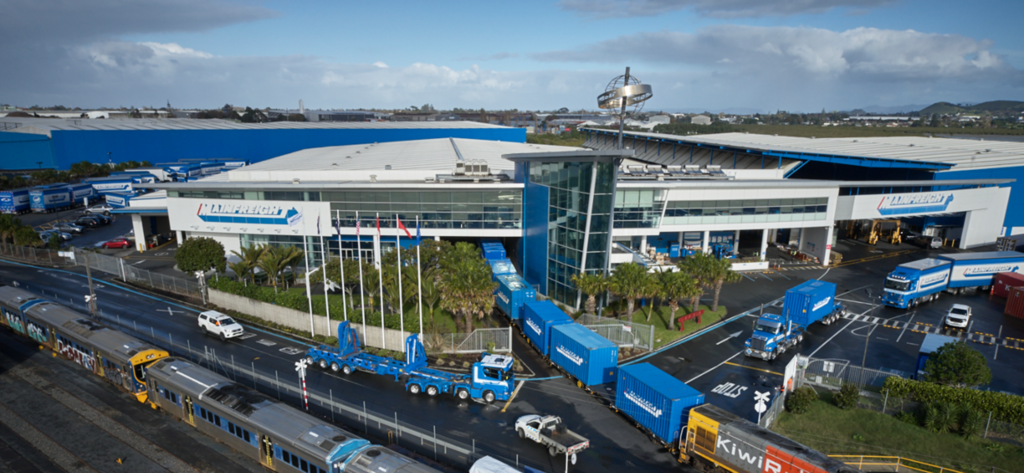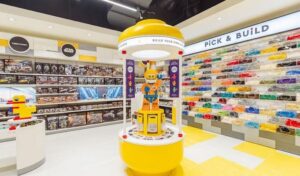
New Zealand business recession stories
 In 2006, Rod Drury founded Xero, a cloud-based accounting software company in New Zealand. When the Global Financial Crisis (GFC) hit in 2008, businesses struggled, but Xero saw an opportunity. They recognised that small businesses would look for cost-effective and efficient solutions to manage their finances remotely.
In 2006, Rod Drury founded Xero, a cloud-based accounting software company in New Zealand. When the Global Financial Crisis (GFC) hit in 2008, businesses struggled, but Xero saw an opportunity. They recognised that small businesses would look for cost-effective and efficient solutions to manage their finances remotely.
Despite the recession, Xero focused on innovation and customer acquisition. They invested in product development and introduced new features that made their software more valuable to users. Their subscription-based model provided a stable revenue stream that helped them to navigate the economic downturn.
Xero’s customer base grew rapidly as more businesses discovered the benefits of cloud-based accounting. The company’s emphasis on online services proved advantageous, and in 2009, they secured a significant round of funding to expand their team and enter new markets. By the time the economy started recovering, Xero had established itself as the leader in cloud-based accounting software. Today, the company has millions of subscribers globally.

Mainfreight is a New Zealand-based logistics company that faced significant challenges during the 2008-2009 recession as international trade slowed. However, under the leadership of CEO Don Braid, the company adapted and diversified. They expanded their services beyond traditional freight transport, developing supply chain management capabilities to offer customers more comprehensive logistics solutions. The company also focused on expanding into new markets, particularly in Asia and the United States, to reduce its reliance on any single market.
Throughout the recession, Mainfreight prioritised its company culture and employee retention. By maintaining morale and job security, the company could retain key talent and maintain a strong team to drive the business forward.
As the global economy recovered, Mainfreight emerged stronger than ever. The company’s adaptability, diversification, and strong company culture positioned it well for growth and continued to expand its operations worldwide. Today, Mainfreight is a global success story with a presence in over 20 countries.
 Icebreaker is a sustainable outdoor clothing company that adapted its marketing strategy during the GFC to emphasise the durability and value of its products, appealing to customers even during tough times. Icebreaker also supported its employees and maintained its company culture throughout the recession. Their commitment to sustainability resonated with environmentally conscious consumers as the economy recovered, positioning the company for growth.
Icebreaker is a sustainable outdoor clothing company that adapted its marketing strategy during the GFC to emphasise the durability and value of its products, appealing to customers even during tough times. Icebreaker also supported its employees and maintained its company culture throughout the recession. Their commitment to sustainability resonated with environmentally conscious consumers as the economy recovered, positioning the company for growth.
 A New Zealand company known for animal management systems and security solutions, Gallagher Group, faced challenges during the 2008 financial crisis. Under the leadership of CEO Sir William Gallagher, the company focused on innovation and diversification to navigate the downturn.
A New Zealand company known for animal management systems and security solutions, Gallagher Group, faced challenges during the 2008 financial crisis. Under the leadership of CEO Sir William Gallagher, the company focused on innovation and diversification to navigate the downturn.
They invested in new technologies, such as the SmartFence™ system, which helped farmers optimise operations and reduce costs. The company also expanded into the security industry, developing high-security perimeter solutions and tapping into new markets.
Throughout the recession, Gallagher Group maintained a strong commitment to its employees and company culture, fostering unity and purpose. As the economy recovered, the company’s investments in innovation and diversification positioned it for growth. Today, Gallagher Group remains a family-owned business with a global presence, serving customers in over 130 countries.
Overseas company recession stories
 Amazon, led by Jeff Bezos, faced significant challenges during the early 2000s dot-com bust. Despite losses and layoffs, Bezos remained committed to his vision of a customer-centric company. Amazon diversified beyond books, selling electronics, toys, and home goods to navigate the recession. The company also invested in technology, particularly logistics and delivery, to reduce costs and improve the customer experience.
Amazon, led by Jeff Bezos, faced significant challenges during the early 2000s dot-com bust. Despite losses and layoffs, Bezos remained committed to his vision of a customer-centric company. Amazon diversified beyond books, selling electronics, toys, and home goods to navigate the recession. The company also invested in technology, particularly logistics and delivery, to reduce costs and improve the customer experience.
Throughout the recession, Bezos emphasised customer satisfaction, offering low prices, a wide selection, and exceptional service. This approach helped Amazon build a loyal customer base and differentiate itself from competitors.
As the economy recovered, Amazon’s innovation and customer service investments paid off, leading to growth and expansion. Today, Amazon is one of the world’s most valuable companies (in May 2024, it has a market cap of $1.880 Trillion).
 During the 2008 GFC, Netflix faced challenges as consumers sought to reduce entertainment expenses. However, CEO Reed Hastings recognised the opportunity to cater to the increasing demand for affordable, convenient entertainment.
During the 2008 GFC, Netflix faced challenges as consumers sought to reduce entertainment expenses. However, CEO Reed Hastings recognised the opportunity to cater to the increasing demand for affordable, convenient entertainment.
Netflix invested heavily in its streaming service, expanding its online library and improving the user experience. The company also introduced a low-priced subscription plan, making it an attractive alternative to cable TV and movie rentals. Throughout the recession, Netflix continued to innovate, producing its own original content and building a loyal subscriber base. As the economy recovered, Netflix’s investments paid off, leading to rapid growth and global expansion.
Netflix’s success during the crisis demonstrates the importance of adaptability, innovation, and customer focus. By embracing streaming technology, expanding its content library, and offering affordable pricing, Netflix thrived during a challenging economic period. Today, the company is a global entertainment giant with over 200 million subscribers worldwide.
 Lego faced a major crisis in 2003, with declining sales and mounting debt. New CEO Jorgen Vig Knudstorp streamlined operations, focusing on the company’s core values and investing in research and development to create innovative product lines.
Lego faced a major crisis in 2003, with declining sales and mounting debt. New CEO Jorgen Vig Knudstorp streamlined operations, focusing on the company’s core values and investing in research and development to create innovative product lines.
Lego’s partnerships with popular franchises like Star Wars, Harry Potter, and Batman helped the company tap into a wider audience and maintain strong sales during the 2008 global financial crisis. Families turned to Lego’s durable educational toys as a smart investment during the recession.
Throughout the crisis, Lego remained committed to its mission of inspiring and developing children through creative play, continuing to invest in innovation with new product lines like Lego Mindstorms.
By staying true to its brand identity, focusing on its strengths, and adapting to changing market conditions, Lego survived and thrived during one of the most challenging economic periods in recent history. Today, the company is stronger than ever, with a global fan base and a reputation for quality, creativity, and fun.
 General Electric (GE) faced significant challenges during the 2008-2009 global financial crisis, particularly due to its financial arm’s exposure to risky investments. CEO Jeff Immelt and his team made tough decisions to navigate the crisis, selling non-core assets and focusing on industrial businesses.
General Electric (GE) faced significant challenges during the 2008-2009 global financial crisis, particularly due to its financial arm’s exposure to risky investments. CEO Jeff Immelt and his team made tough decisions to navigate the crisis, selling non-core assets and focusing on industrial businesses.
GE implemented cost-cutting measures, such as lean manufacturing and supply chain optimisation, while investing in innovation and new product development. The company focused on growth areas like renewable energy, aviation, and healthcare, developing new technologies and solutions.
Throughout the crisis, GE remained committed to its core values, communicating transparently with stakeholders, and building trust. Although the path to recovery was not always smooth, GE’s focus on innovation, efficiency, and core strengths helped it emerge as a stronger, more resilient company.
GE’s story demonstrates the importance of adaptability, innovation, and leadership during economic adversity. By making difficult decisions, investing in the future, and staying true to its values, the company survived and thrived during one of the most challenging periods in its history.
Common strategies to survive and thrive in a recession
- Focus on core strengths and values.
This strategy helps your business maintain its identity, reputation, and competitive advantage during challenging times. Ask yourself: What are our core strengths and values? - Adapt to changing consumer needs and preferences.
By staying attuned to evolving customer demands, businesses can remain relevant and attract new business. Ask yourself: What do our customers want? - Embrace innovation and technology.
Investing in new technologies and innovative solutions enables businesses to improve efficiency, reduce costs, and create new growth opportunities. Ask yourself: How can we do better? - Diversify products and services.
Diversification helps businesses spread risk, tap into new revenue streams, and become more resilient to market fluctuations. Ask yourself: How can we vary our product/service? - Expand into new markets.
Entering new geographic markets or customer segments allows companies to find untapped opportunities and reduce reliance on a single market. Ask yourself: Who else can benefit from our products/services? - Maintain a strong company culture and employee loyalty.
A positive company culture and loyal employees contribute to better morale, productivity, and customer service, which are crucial for weathering economic storms. Ask yourself: How can we improve things for our employees and customers? - Implement cost-saving measures without compromising quality.
By carefully reducing expenses while maintaining product or service quality, companies can improve their financial position and remain competitive during recessions. Ask yourself: When did we last look at our supply contracts?
They are great questions to ask ourselves and our business leaders. Although the stories and strategies represent companies that seem big, every single strategy represents something that can be applied to medium, small and self-employed businesses.
I like Dave Grohl’s quote: “No one is you, and that is your superpower.”
Even though that quote relates to individuals, I believe it also relates to businesses. Even if you sell the same product or service, your purpose and values will bring something different to the table and connect with an audience that values the same.
So, flip the script. While any recession can be daunting, remember that it also presents opportunities for businesses to innovate, grow, and solidify their position in the market. If you’d like to talk to someone on the Gilligan Sheppard team, contact us, and we’ll make sure you speak with the right people at the right time.

